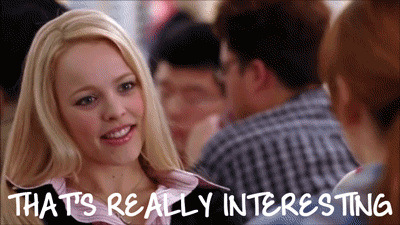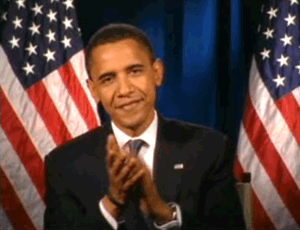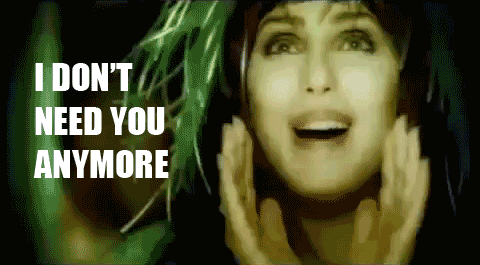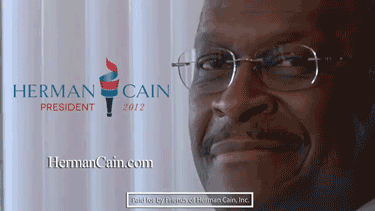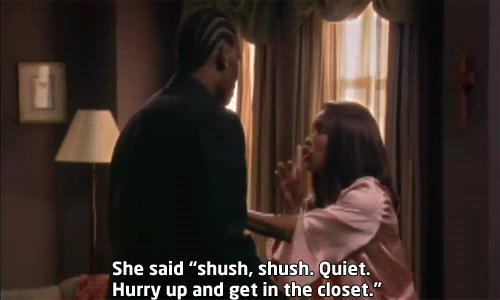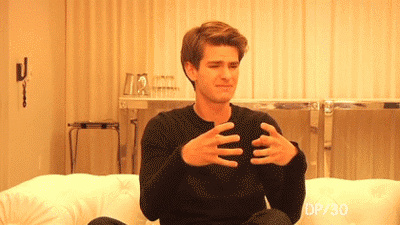The rise of Lena Dunham, Adele and Christina Hendricks might challenge the tyranny of thin, but our obsession with body size is still out of control, argues Lionel Shriver
We're used to actors stripping on camera by now, so, in the many episodes of Girls in which Lena Dunham tugs her dress over her head, what's shocking isn't the bare breasts, but the belly: it's convex. Though Dunham could hardly be called fat, her stomach displays a distinct little jiggle. Has she no shame? No, as a matter of fact. She doesn't.
By increments, the tyranny of the thin is seeing cultural pushback. The bouncing roly-poly Beth Ditto and the formidable what-are-you-looking-at? Christina Hendricks in Mad Men project an audacious aesthetic alternative to the functional-anorexic ideal. So incendiary has the issue of physical size become in the west that weight takes on the character of a political statement. The rise of stars such as Melissa McCarthy of Bridesmaids (who has started her own plus-size clothing line), and television shows such as My Mad Fat Diary, could collectively be seen as the formation of a new party. With the belligerence of Ukip leader Nigel Farage, standard-bearers of the unapologetically three-dimensional say: Shove your skinny minnie game, because we're not playing.
Since Girls is a hipper, grittier update of Sex and the City, Dunham's Hannah is clearly crafted in counterpoint to the lean, gym-chiselled Carrie Bradshaw played by Sarah Jessica Parker. Short and a bit dumpy, Hannah wears tented dresses with unflattering high waistlines. Hannah's ex from college submits the dubious defence: "You were never fat. You were soft, and round, like a dumpling." We never see her on an exercise bike, and when Hannah eats ice-cream we don't picture Dunham spitting it out the moment the scene wraps. When her sort-of boyfriend presses Hannah on whether she's ever "tried a lot to lose weight", she deflects, "I have some other concerns in my life." Imagine any contemporary woman having "concerns" that would top the all-consuming prime directive to be thin.
Weight having become politicised, anyone with a profile in the media who either subscribes to or departs from the template of tininess implicitly represents a constituency, whether they want to or not.
Indeed, for many in the public eye this de facto advocacy must be unwelcome. As Emma Woolf notes in her forthcoming book The Ministry of Thin, women's magazines hold up Adele "as a role model for 'real' women (when she's just a great singer)". Did Adele choose to go on the campaign trail for the amply proportioned, or is she simply a talented woman who doesn't happen to be neurotic about her weight? You don't volunteer for this job; you get drafted. Anyone in the spotlight is necessarily a gladiator in what has grown into a national spectator sport: following the fluctuating weights of public figures. We comment smugly from the sofa that all those state dinners have certainly filled out Hillary Clinton's cheeks. Resigned to the inevitable scrutiny of her contours, Oprah Winfrey has for years offered up her losing battle of the bulge as a running soap for her fans.
To the degree that the hefty celeb becomes an unwitting champion of her weight class, slimming reads as treachery. "When a famously fat woman loses a large amount of weight," writes Woolf, "there is the sense that they're somehow letting the side down." For zaftig fellow travellers, the voluptuous Nigella Lawson's dropping two stone, or FatFriends star Ruth Jones dropping four and a half, can amount to disloyalty and desertion – since long gone are the days when your dietary and athletic habits were nobody else's business.
Ironically, heavier comedians, actors, and the characters they play are actually more sympathetic, and easier for audiences to identify with, than the svelte. The skeletally slim are more apt to draw envy, and if you do play the skinnier-than-thou game you will be judged harshly if you gain an ounce. Gwyneth Paltrow, with her chia-seed-strewn cookbook, is not as inherently likable as Jo Brand (whom the tabloids used to decry as a cow). Dunham is beguiling in Girls not in spite of, but, in part, because of that little roll at her waist, and for her to lose that baby fat at this point would be a big career mistake. Accordingly, I gave the narrator in my new novel Big Brother 20 excess pounds, which would make her more appealing to readers in a novel that dealt so intimately with food issues.
So if the ranks of the little and the large are the cultural equivalent of the Tories and Ukip, what are their platforms? The ruling party of the rail-thin embraces the "striver". The human form, and thus the human spirit, is perfectible. Salvation awaits, so long as you pass on that cupcake. All you poor caterpillars can turn into butterflies by dropping another jeans size. Skinniness is next to godliness, and, as you narrow, you near redemption. Subscribers to the ethos of evaporation believe in purification through sacrifice, in the mortification of the flesh, in the triumph of the will. It's an unending battle for self-improvement, but with this crucial caveat: to improve the self is to improve the body. The self is the body. What you see is what you are.
The upstart party of the portly – or the party of the visible-to-the-human-eye – plumps instead for acceptance. Its supporters reject the "misery today for nirvana tomorrow" model, since that bony lot are never thin enough, will never be satisfied unless they disappear. So gratification delayed is gratification foregone. Moreover, standards of beauty are elastic. How much easier than to starve all day is it to amend the absurd, unachievable aesthetic to which all those serial-dieting suckers are struggling to conform. Believe big is beautiful, and have lunch. Scandalously, this radical faction has the gall to suggest that there is more to life than diet and exercise; that intelligent people occasionally turn their attentions to something else. As Melissa McCarthy told Good Housekeeping magazine about her broad silhouette: "I'm OK with it. I've got other things to think about." The most revolutionary tenet of this manifesto: comely or plain, the body is a husk. It is a home, and can be loved in its way, but in time it will betray you, the scrawny and stout alike, and it is not you. Skinniness is not next to godliness; it is next to nothing. A new look is not a new self. A smaller waist is not the solution to all your problems. Get down to size six, and you will still hate your job and be at loggerheads with your mother.
I know which party I'm voting for.
Relatively slight, I may make an unlikely poster girl for the UK Independence From Size Obsession Party (Ukisop). Still, I applaud the emergence of cultural icons who don't collapse into a vertical line if they turn to the side, who aren't embarrassed to be seen eating in public, and who, we presume, once in a while think about something other than whether to dress their salads. Let's leave aside for a moment the whole "obesity epidemic" – though last time I checked, fat wasn't contagious – and its attendant health concerns. As I have personally confirmed in the last few weeks during the release of Big Brother, this weight-and-fitness hysteria is out of control, and I think we can all agree if we take a step back that it is only getting worse.
Publishers like their authors to take advantage of publicity opportunities. Garnering any media attention for fiction is a challenge, and anyone who's spent years crafting a novel wants people to read it. Thus, after having been repeatedly punished for doing so, I still give interviews. Following this release, I'll reconsider that policy, although by now that would amount to locking the stable door after the bullshit has bolted.
At the risk of sounding like a pretentious drag, I'd surely be classed as a "serious writer". Yet most profiles of me run in the last few weeks have focused almost exclusively on what I eat, how often I eat, when I eat, how much I exercise, what kind of exercise I do, and exactly how many repetitions of those exercises I perform – in comparison to which the occasional diversions into how often I turn on the central heating qualify as merciful excursions into the profound. Pursued at my age purely to slow, not prevent, my musculature's turning to pudding, my dreary little fitness regimen doesn't begin to compare to any proper athlete's training. Yet one article insinuated that what I described was impossible. Really – how sad would you have to be to lie about how many star jumps you do in front of the Channel 4 news?
Granted, to some degree I invited this nosiness with the subject matter of Big Brother: obesity and our complex contemporary relationship to food. A tentative connection to the novel's themes helps to explain why I might be willing to discuss mundanities like the energy I biologically ingest and expend with journalists. (That and my fatal tendency to answer a question merely because someone asks it unless I can think of a reason I shouldn't, and I usually think of that reason too late.) But this has happened with previous novels that had nothing to do with diet. What I have regarded as decorative chitchat in preparation for the real interview ends up occupying the vast majority of the subsequent profile's text, which focuses on – that's right – what I eat, how often I eat, when I eat … In a recent essay for the Sunday Telegraph, I argued that we over-signify our own and each others' size, and that our focus on food and weight is backfiring. What headline did they choose – which was antithetical to the essay's very point? "MY FEAR OF FAT." You'd think that at least a book review would be obliged to concentrate on the novel at hand, but no. Last week's Evening Standard review of Big Brother begins with – surprise! – when the author eats dinner.
It gets worse – it gets even pettier.
I often give interviews at One Aldwych, a London hotel that serves a civilised pot of tea with a complimentary plate of biscuits: two cherry-coconut and two chocolate. When I met my first interviewer for Big Brother there in March, the biscuits arrived on the journalist's side of the table. Neither of us touched or even alluded to the biscuits. I didn't like the whole drift of the interview, and wasn't in the mood to munch – although in a brief email exchange exploring the possibility of a second meeting that never materialised, I tossed in the softening, friendly sounding line: "Next time I'll hit the biscuits – which at One Aldwych are killing."
How did this creatively morph in the published profile? We're told that throughout the interview I had "kept urging" the journalist to eat the chocolate biscuits, while refusing to have one myself. Surely, she wrote, I mistook her own refusal to eat a biscuit for the same self-denial on which I obviously pride myself – while, in fact, the poor woman was obliged to keep defending herself against an incessant assault of unwelcome force-feeding because she doesn't like chocolate.
This is minutiae – crumbs, if you will – but oddly important. I was cast as one of those skinny bitches who always needs other people to eat more than they do so they can feel superior.
So, I meet a second journalist in One Aldwych. I eat half a biscuit. Vital information about a literary figure that, of course, makes the profile.
By the third interview, the plate of biscuits lands like a gauntlet on the table. If I decline to eat one, I am a calorie-phobic priss who's terrified of displaying weakness in public. If I eat one, I defy my burgeoning rep (thanks to the previous profiles) as an ascetic, and I am a liar: lose-lose. The only answer was to take that plate head on. We talked about the biscuits.
We talked about the fact that if a journalist granted an interview with Philip Roth were to have filed a piece giving any space whatsoever to whether the author ate a biscuit during the interview, and, if so, what proportion, his or her editor would cut the passage. (True, in rare instances we do learn the dietary habits of influential men; before he retired, the New York Times reported that General David Patraeus eats one meal a day – which bulwarked his daunting image as a strong, fierce military man. When Lionel Shriver eats one meal a day, she's a nut.) We talked about how women in particular now use food and fitness as the currency through which they relate to each other – how at this journalist's office, the chatter between female co-workers was relentlessly about who skipped lunch, violated their diet, started a new diet, broke down and finished the Jaffa cakes, or failed to go the gym. This is how women connect, and how women compete: with biscuits. I enjoyed our conversation, although I went home depressed.
But then, men are on course to become every bit as neurotic about their physiques as women. Surely feeling the critical eyes of his audience upon him, Christian Jessen of Supersize vs Superskinny has grown noticeably more gaunt, and didn't seem displeased when the fat content of his buff, cut frame was measured recently on the programme as medically too low. While male celebs such as Robbie Coltrane have typically been able to get away with being chunky so long as they give good value in other departments, in 2011 Jonah Hill of Cyrus fame lost 40lb (18kg), to much comment from the peanut gallery, only to have the Daily Mail banner photos last year suggesting that he'd gained most of it back. Plenty of male actors have caught the diet bug: James Corden, the chubby sidekick on Gavin and Stacey, has now lost five stone (32kg). These gentlemen's girths being a private matter, I really shouldn't be able to look this crap up, but the rise and fall of male celebrity diets have become nearly as much of a public spectacle as the women's.
Consider, by the way, how gleefully the media would have gone to town had the author of Big Brother sported a reproachful bloop above the belt. As I have been mocked for working up a sweat every day, I'd have been mocked as ruthlessly or more so were I a slob. If you're thin, you're a kook; if you're fat, you're a failure. You can't win. In fact, nobody in this game is winning.
Thus, I herein formally announce my defection to Ukisop. The trivilialisation of my life, character and career in the print media this last month – the reduction of what I write and believe to how I work out and what I eat – is yet more evidence of a communal mental illness. We have bought into a new materialism even more demeaning and superficial than the old kind, whereby the good life meant ownership of a slick make of car. Now we are the material. The mere body in which we shamble defines who we are, and fat-to-muscle ratio scores our very worth as human beings. The most convincing aspect of that alternative "platform" seemingly touted by people in the news with meat on their bones is the rejection of an equivalence between body and self. That need not entail a flat-out rejection of the possibility of self-improvement. Yet it does challenge the notion that to "improve" the body – it goes without saying that translates to "slim" – is to improve the self. In times past, "self-improvement" referred to learning Spanish, taking an adult education course in medieval history, or expanding your vocabulary. Now it refers exclusively to cutting calories and doing crunches.
In his newly translated book The Metamorphoses of Fat: A History of Obesity, Frenchman Georges Vigarello observes our "changed outlook on the body" and "the displacement of its status to the central spot that organises one's identity". Catastrophically, "the subject 'is' his or her appearance". He concludes: "More than ever before, identity comes from the body, and, more than ever before, we have the anxious feeling that this body can double-cross us."
Quite. Anyone who's disabled, who's survived a terrible traffic accident or been blown up by an IED in Afghanistan, who's gone through painful reconstruction surgery from an acid attack – anyone who gets old (sorry to bear bad tidings, but sooner or later that means you) – can testify that the self is not the body. The soul of a man in a wheelchair is not crippled. The interior world of an elderly woman is not withered. The new materialism is philosophically crude, morally deficient, evolutionarily regressive, existentially stunted and plain dumb.
Whether for the sake of rivalry, ingratiating self-deprecation, or bonding, how have we come to the point – and by "we" I do mean we women – where what we eat and how we exercise mediates our relationships and colonises the content of our discourse wholesale? Since when does a mere plate of biscuits present itself as a minefield on which one false crunchy step condemns you as either a snooty bitch or a weak-willed hypocrite? In days of yore, writers, recall, lived the life of the mind, right? They were intellectuals, or creative gnomes, hunched over keyboards, who flourished in their feverish imaginations. All right, I'm a writer. Those journalists were your emissaries, sent to have conversations with me on your behalf. Given an hour with me across a pot of tea, is that what you'd want to talk about – how often I eat? Why do you care how many press-ups I do, or whether I do them at all? For that matter, why do you care what Kate Winslet weighs, or whether a colleague passes on a second sandwich? This stuff is small-minded, catty, humiliating and pathetic. It plays to exactly the stereotype of silly, tittering, mirror-gaping girlies at which many men still, perhaps justly it seems, roll their eyes behind our backs, even if the blokes, too, are increasingly prey to the same navel-gazing at their guts – and it has got to stop.
